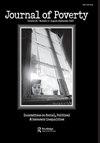“没有人死在前夜”:感受禁闭期间的思考知识和行为
IF 0.8
Q3 SOCIAL WORK
引用次数: 0
摘要
摘要本作品是在新冠肺炎大流行期间编织而成的,是我在病毒造成的行动限制所引发的隔离之外行走的一部分。该病毒的高致死性及其对隐形人群的影响,加剧了厄瓜多尔州制度化的流行病种族主义的历史影响。几个世纪以来,在这个国家的许多角落,国家一直缺席(也许仍然缺席)。这在乔塔山谷尤其如此,该山谷位于因巴布拉省和卡尔奇省的祖先非裔厄瓜多尔领土上。通过一次简短的民族志实地调查,我收集了非裔厄瓜多尔人社区的一些经验,加上他们的哲学、宇宙观和编织知识,在面对持续的历史忽视时,维持了非裔Ecuador人的生活。在证词的基础上,我提出了一个我称之为存在教育学的概念。这些是基于人们记忆中的社区实践和价值观的教育学,是面对死亡或国家信奉的死亡政治的非伦理的工具。在新冠疫情期间,与死亡的关系在社区内获得了其他细微差别,“浪子”以逆向流动的方式从城市回到农村地区,以应对重新安置和回归的需求。本文章由计算机程序翻译,如有差异,请以英文原文为准。
“No one dies on the eve”: feel-thinking knowledges and doings in confinement times
ABSTRACT The present work was woven amidst the COVID-19 pandemic and is part of the walk that was possible for me outside the confinement provoked by the mobility restrictions imposed by the virus. The high lethality of the virus and its reflection on the invisibilized populations, have potentiated the historical impacts of pandemic racism which is institutionalized in the Ecuadorian state. For several centuries the state has been absent (and perhaps remains absent), in many corners of the country. This is particularly true in the Valle del Chota, located in the ancestral Afro-Ecuadorian territory in the provinces of Imbabura and Carchi. Through a brief ethnographic fieldwork, I gathered some of the experiences in Afro-Ecuadorian communities that, along with their philosophical, cosmogonic, and woven knowledge, have sustained Afro-Ecuadorian lives in the face of continuous and historical neglect. Building upon testimonies I propose a concept that I call pedagogies of existence. These are pedagogies based on community practices and values that are lodged in people’s memory which have been instruments to face the non-ethics of death or state-embraced necropolitics. During the pandemic the relationship with death has gained other nuances within the communities, to which the “prodigal children” have returned in a reverse flow, from the cities to the rural areas, responding to a need for rehumanization and return-to-being.
求助全文
通过发布文献求助,成功后即可免费获取论文全文。
去求助
来源期刊

Journal of Poverty
SOCIAL WORK-
CiteScore
2.60
自引率
10.00%
发文量
26
期刊介绍:
The Journal of Poverty is the first refereed journal to recognize the inequalities in our social, political, and economic structures, presenting progressing strategies that expand society"s increasingly narrow notions of poverty and inequality. The journal"s broad understanding of poverty—more inclusive than the traditional view—keeps the focus on people"s need for education, employment, safe and affordable housing, nutrition, and adequate medical care, and on interventions that range from direct practice to community organization to social policy analysis. The journal"s articles will increase your knowledge and awareness of oppressive forces such as racism, sexism, classism, and homophobia that contribute to the maintenance of poverty and inequality.
 求助内容:
求助内容: 应助结果提醒方式:
应助结果提醒方式:


